5 min read
Share this post

Many irregular plural nouns are used heavily in English (e.g. man, woman, person) and others at a moderate level of frequency (e.g die, sheep, mouse, foot), so they are worth teaching your ESL students, early in their language progression.
In our N6.1-Singular-Plural lesson we covered all nouns that take endings in their plural forms (i.e. “regular” plurals). We suggest tackling this lesson with your students first. In our irregular plurals focused lesson, N9.1- Irregular Plurals (which you can find here), we open with a quick review of the different regular plural ending forms:
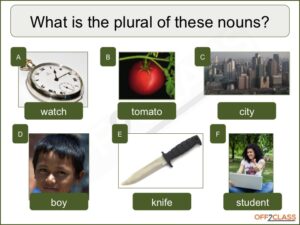
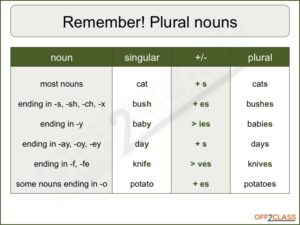
After reviewing the regular plural ending forms we jump to the most common group of irregular plurals, those that take different words in both singular and plural such as man/men, child/children, woman/women and person/people. These are the most commonly used irregular plurals so it is important that your student becomes comfortable with their use before moving on:
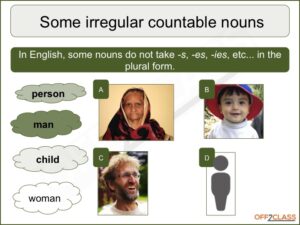
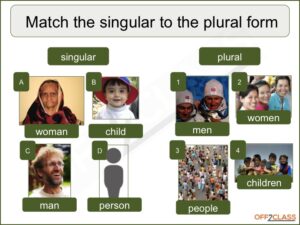
Since we have covered the nouns man, woman, person and child, we take some time to review the concept of using the verb to be with an adjective (e.g. the men are happy). Of course, your student is likely already aware of this grammatical structure, but it is a good time to solidify the concept.
We then introduce a second group of irregular plurals, foot/feet, die/dice, tooth/teeth, mouse/mice and foot/feet:
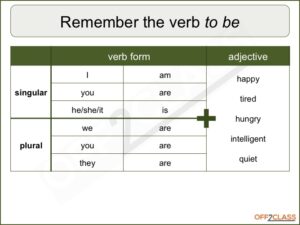
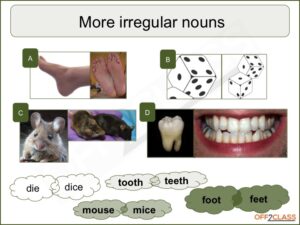
We finalize the lesson by covering animals that are the same in their plural forms as they are in their singular forms (e.g. fish, sheep, shrimp, deer, moose) and conclude by reviewing all of the irregular plurals that we have introduced throughout the lesson.
Share this post
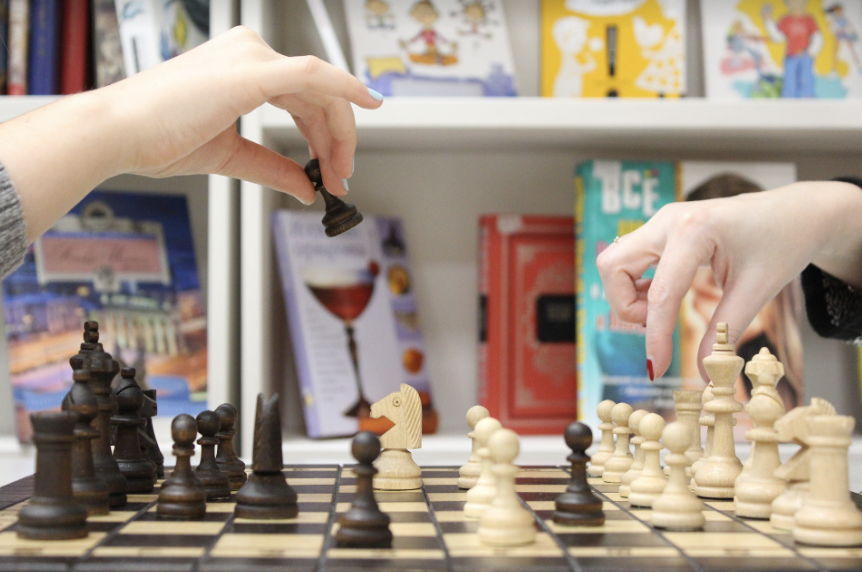


Leave a Reply